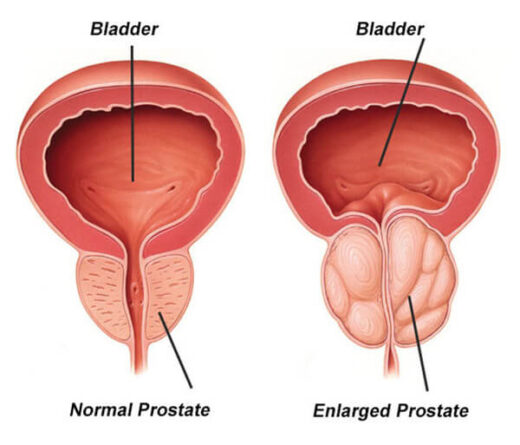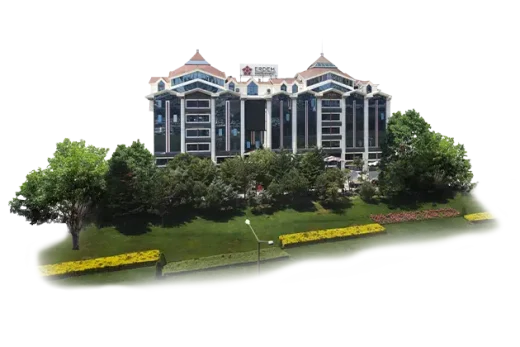I used to think I was in control of my life. At 55, I had a stable career, adult kids doing well, and enough energy to get through the day without complaint. I watched what I ate (most of the time), went for the occasional jog, and figured the biggest health concerns ahead were a sore knee or high cholesterol.
Then came the slow, silent intruder I never saw coming: an enlarged prostate or as the urologist called it, Benign Prostatic Hyperplasia (BPH).
At first, I just thought I was drinking too much coffee. Then it was too much water. Then maybe it was stress. But the truth is, I was waking up three or four times a night, struggling to pee, and avoiding car trips longer than 30 minutes. I didn’t realize it then, but my prostate had become a turning point in my health and in my mindset.
This is the story of how BPH became my midlife wake-up call, and why I believe it can be one for other men, too.

The Symptoms I Ignored (Until I Couldn’t)
Looking back, the signs were clear. They just didn’t scream at me, they whispered.
- I had a weak urine stream and felt like I wasn’t completely emptying my bladder.
- I started mapping out every restroom before going anywhere.
- I began avoiding evening events, just to stay near a toilet.
- I stopped sleeping through the night, and my energy plummeted.
- My patience wore thin at work, at home, everywhere.
But like many men, I brushed it off. I told myself, “This is just part of getting older.”
I didn’t realize how much of my life I was surrendering to a condition I hadn’t even named yet.
What Is BPH and Why Does It Happen?
BPH, or Benign Prostatic Hyperplasia, is a non-cancerous enlargement of the prostate gland, which sits below the bladder and wraps around the urethra. As men age, this gland often grows usually due to hormonal changes, particularly around testosterone and dihydrotestosterone levels.
According to the National Institute of Diabetes and Digestive and Kidney Diseases, nearly 50% of men between ages 51 and 60 have BPH. That number rises to up to 90% by age 80.
But just because it’s common doesn’t mean it’s harmless.
The Emotional Toll of “Just Dealing With It”
What surprised me most wasn’t the physical symptoms, it was how emotionally exhausting they became.
I was anxious all the time. I planned my life around bathrooms. I was irritable from lack of sleep. I felt embarrassed even talking about it. BPH made me feel like I was losing control of something basic, something no man wants to admit: his body.
And worse, it chipped away at my confidence and independence. I stopped going on hikes with my sons. I left concerts early. I skipped trips because the thought of long drives terrified me.
It’s amazing how one small gland can take up so much space in your life.
The Doctor’s Visit That Changed Everything
After nearly a year of discomfort, I finally booked an appointment with a urologist. I won’t lie, I was nervous. I had worried this could be prostate cancer or something more serious.
But after an exam, a PSA blood test, and a few other scans, I was diagnosed with BPH, not cancer. My doctor reassured me: “You’re not alone. And we can treat this.”
It was the first time I felt hope in months.
What I Learned About Health (The Hard Way)
Here’s the thing: BPH forced me to stop coasting when it came to my health. I had always viewed myself as “generally healthy.” But I wasn’t paying attention to the small signs. And those small signs, left unaddressed, were eroding my quality of life.
Here’s what I learned:
1. Being a Man Doesn’t Mean Staying Silent
The idea that we should tough it out, ignore symptoms, or avoid doctors until it’s too late? It’s outdated and dangerous. Taking control of your health is strength not weakness.
2. Quality of Life Matters
It’s not just about preventing heart attacks or cancer. It’s about how well you sleep, how confident you feel, how comfortable you are going through your daily routine. Health isn’t just about survival, it’s about living fully.
3. There Are Modern Solutions
I thought BPH treatment meant surgery and sexual side effects. I was wrong. There are minimally invasive procedures, medications, and lifestyle strategies that work.
Exploring My Treatment Options
After weighing the pros and cons with my doctor, I learned about several options:
• Lifestyle Adjustments
Simple changes like cutting caffeine, avoiding late-night fluids, and doing pelvic floor exercises can help mild cases.
• Medications
- Alpha-blockers (like tamsulosin) helped me urinate more easily.
- 5-alpha reductase inhibitors (like finasteride) shrink the prostate over time.
For some men, these work wonders. For others, side effects like fatigue or reduced libido can be a problem.
• Minimally Invasive Procedures
Eventually, I chose a laser-based procedure HoLEP (Holmium Laser Enucleation of the Prostate) because it offered long-term relief and fast recovery. I was back to sleeping through the night within days.
There’s also UroLift, Rezūm, and TURP, each suited to different prostate sizes and patient needs. The key is: you have options and they’re not as scary as you think.
Life After BPH Treatment
Since my procedure, I’ve stopped checking for bathrooms before entering a room. I sleep better. I will travel again. My mood is lighter. My family noticed the difference even before I did.
But beyond the symptom relief, BPH treatment gave me something I didn’t expect: a renewed sense of awareness and accountability for my own well-being.
Why I’m Sharing This Story
If you’re reading this and silently struggling with urinary issues, fatigue, or embarrassment, let me say this: you are not alone. And more importantly, you’re not stuck.
Don’t wait for things to get worse. See a doctor. Ask questions. Take your health seriously.
Your life doesn’t have to shrink because your prostate has grown.
Thinking About BPH Treatment Abroad?

For men considering high-quality care at affordable prices, Turkey has emerged as a leading destination for BPH treatment, offering cutting-edge procedures like HoLEP and UroLift with world-class results.
At Erdem Hospital, you’ll find:
- Experienced urologists using advanced minimally invasive techniques
- Personalized care plans based on your prostate size and symptoms
- Comprehensive support for international patients, including hotel coordination and English-speaking medical staff
- Short recovery times so you can return home with confidence
This Isn’t the End It’s the Wake-Up Call
BPH taught me that ignoring small problems today only leads to bigger problems tomorrow. It reminded me that age doesn’t mean decline, it means adjustment. And most importantly, it proved that paying attention to your body is the best investment you can make in your future.
If your body is whispering, listen now before it starts shouting.
Don’t wait for a crisis to start caring about your health. Let this be your wake-up call.
Book your consultation with Erdem Hospital’s urology team today and take the first step toward comfort, clarity, and confidence.